7 most beautiful landscapes in Lima
Is Lima as gray and awful as they say? No, the capital region of Peru has natural and urban landscapes that are worth appreciating. This city offers sea, mountains, deserts, swamps and more. Enjoying these landscapes is free in some cases. You just have to get there, either by public transport or taxi. Here we tell you which are the seven most beautiful landscapes in Lima, how to go there and more.
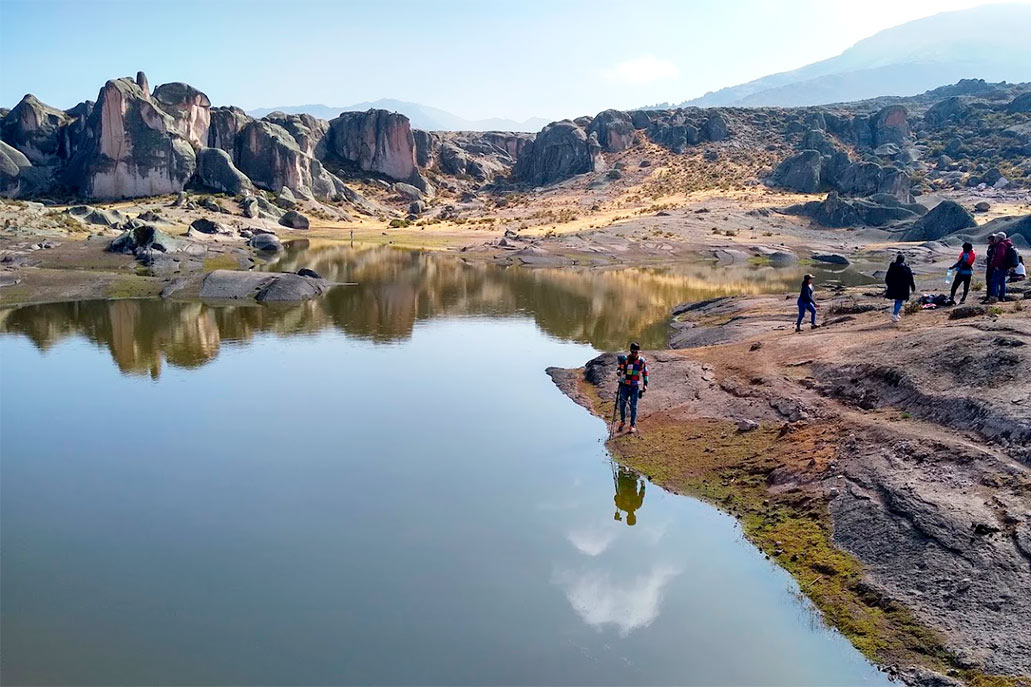
Content
The Miraflores boardwalk
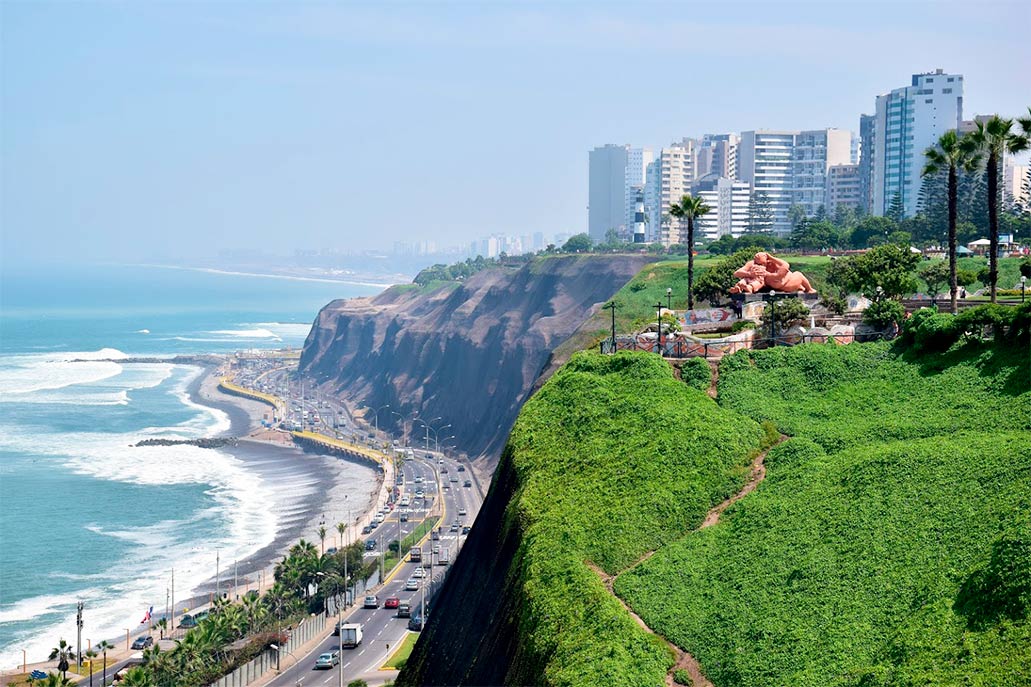
One of the most famous postcards of the city of Lima can be found on the Miraflores boardwalk. It is a long strip of ravines from where you can see the sea and the buildings of the modern city. It can be divided into four public spaces: the 28 de Julio boardwalk, the Reserva boardwalk, the Cisneros boardwalk and the La Marina boardwalk.
This beautiful and clean boardwalk is in the heart of Miraflores, the most touristic district of the city. Nearby are the main hotels, restaurants and shops (such as the Larcomar shopping center). The views are beautiful every day, especially in summer (January, February and March) and at sunset (from 5 to 6 in the afternoon). Don’t miss out!
- How to get there? From Kennedy Park in Miraflores, you only have to go down the Balta boardwalk (only a 15-minute walk).
- How much does it cost? Free.
The Cerro San Cristobal
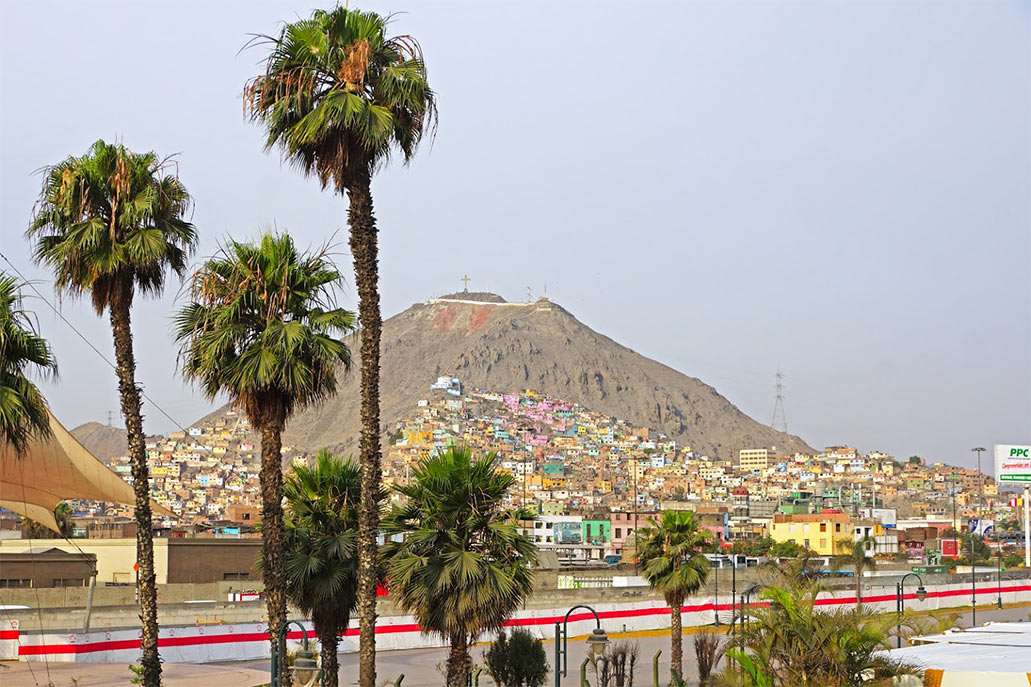
The famous Cerro San Cristobal, the highest small mountain in the city (400 meters above sea level) shows one of the most beautiful landscapes of the growth of the city. From there you can see the historic center, the tall buildings of the modern sector and even the Lima coastline. It is visited by both locals and foreign tourists.
Cerro San Cristóbal stands out for the huge monumental cross (with forty-eight embedded lights) that guards the city. It is located in the populous district of Rímac. Its history dates back to the same Inca era. Its name was granted by Francisco Pizarro in 1535. In the place there is a small site museum. You can go day or night, although the first option is more recommended.
- How to get there? By tourist bus from the Main Square in Lima or on foot along the route of the ‘thousand steps’ from the Paseo de las Aguas in the Rímac district.
- How much does it cost? Free. The tourist bus to get there costs 20 soles.
Marcahuasi
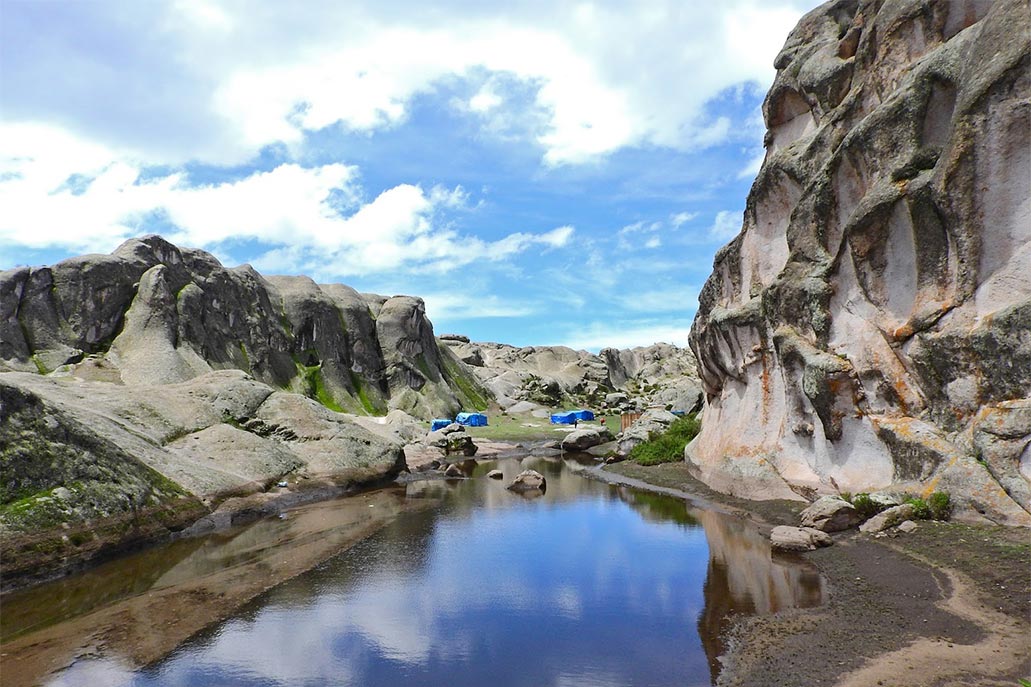
Marcahuasi offers a one hundred percent mountain landscape in Lima. It is more than 4 thousand meters above sea level. It is famous for its stone forest with rock formations such as ‘The monument to humanity’, ‘The sacred feline’, ‘El sapo’ or ‘The valley of the seals’. There you can also see lagoons, a blue sky, Andean towns as well as a diversity of mountain flora and fauna.
Marcahuasi is about 5 hours from the city of Lima. It belongs to the district of San Pedro de Casta in the province of Huarochirí. Visitors like to camp under the stars on top of this plateau. There are popular stories that claim to have seen aliens on this site. Will it be true? The truth is that the landscapes that are achieved there are unique.
- How to get there? From the city of Lima, take the ‘chosicano’ buses to Echenique Park in Chosica. Then a bus to the town of San Pedro de Casta. Finally a 2 hour hike to the stone forest.
- How much does it cost? 20 soles for foreigners, 10 soles for Peruvians and 5 soles for university students and schoolchildren.
Nor Yauyos Cocha Reserve
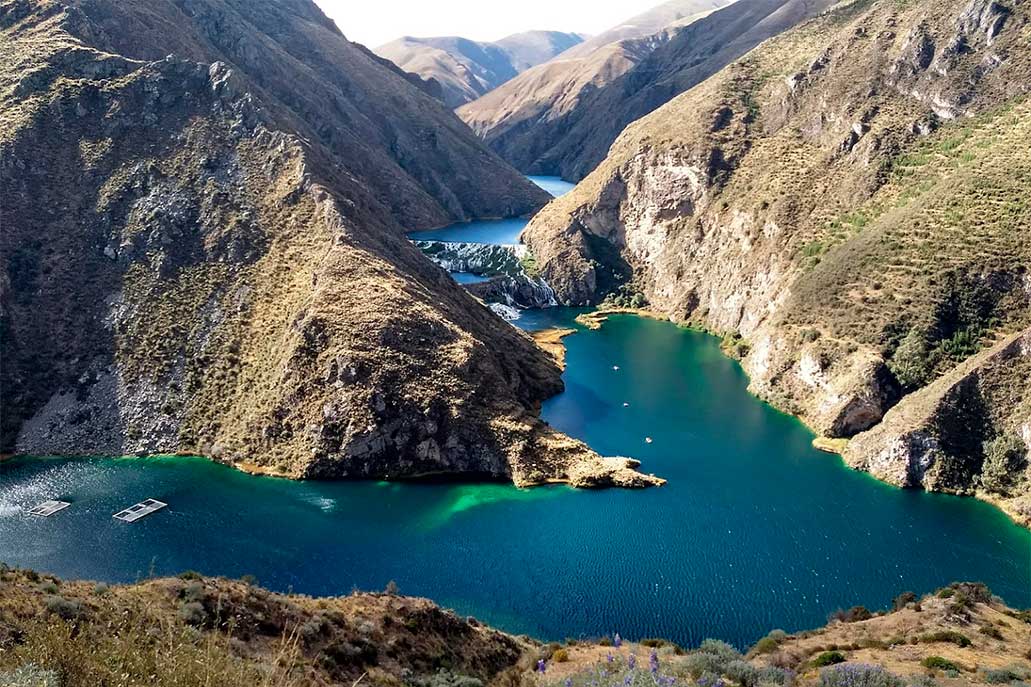
The landscape reserve of Nor Yauyos-Cochas is a natural area located in the mountains of Lima. There you can see incredible landscapes of rivers, mountains, forests, waterfalls, lagoons and more. One of its main tourist attractions is Huancaya where many visitors like to camp. It is located 232 kilometers from the city of Lima (7 hours of travel on average).
This reserve covers a total area of 221,268 hectares. Some of its main landscapes are the Cabracancha waterfalls, the Huancaya suspension bridge, the Huallhua lagoon, the Carhuayno viewpoint, the forest of love, the Chin Chan waterfalls, some of Papacocha and more. Note that the temperature varies from a maximum of 23ºC. up to a minimum of 0ºC.
- How to get there? Buses depart from the city of Lima, in the district of La Victoria. Another option is to travel from Lima to Cañete and, once there, take a transport to Huancaya.
- How much does it cost? The entrance to the reserve costs 3 soles. The bus trip from Lima costs approximately 50 soles.
The Lomas de Lachay
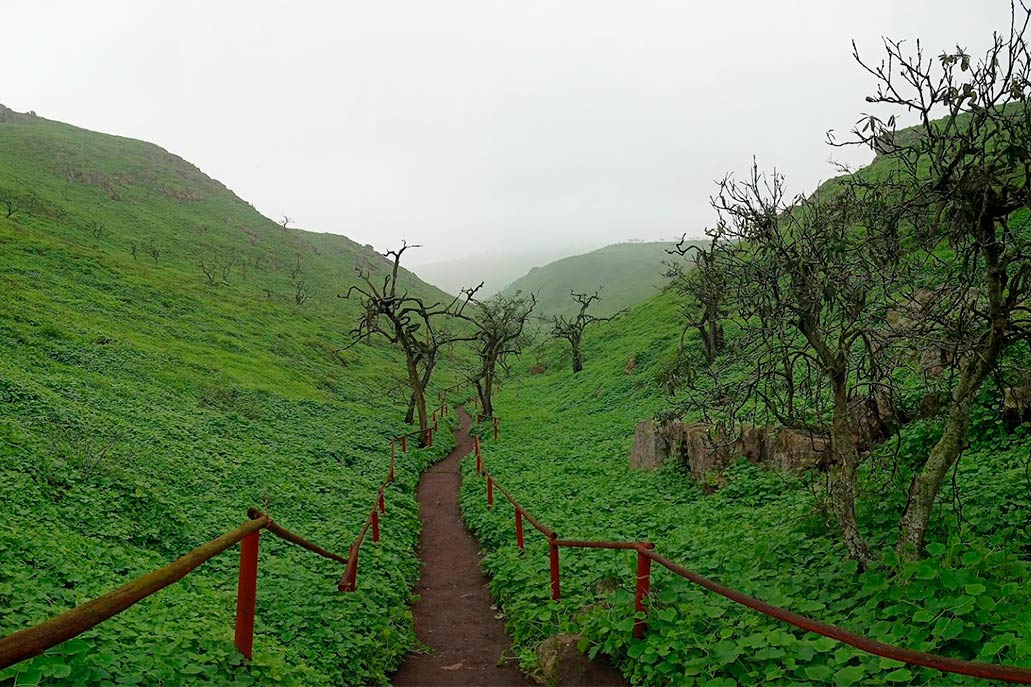
The Lomas de Lachay are a natural space abundant in flora and fauna formed thanks to the humidity coming from the coast of Lima. It is located 97 kilometers from the city of Lima. There it is possible to appreciate humid forests inhabited by plants, mammals, birds, insects and much more. In 1977 it was established as a National Reserve with an area of 5,070 hectares.
In the Lomas de Lachay you can appreciate incredible natural landscapes. It is also famous for its beautiful sunsets. Visitors like to camp there. Then they carry out routes such as ‘The Fox Circuit’, the ‘Partridge Circuit’, the ‘Tara Circuit’ and more. The visit should be made from May to October when the place is full of forest and tourists.
- How to get there? From the ‘Plaza Norte’ land terminal in the city of Lima, take a public transport bus to kilometer 105 of the highway. Then there is a 7-kilometer walk to the Lomas de Lachay.
- How much does it cost? The entrance fee is 30 soles for foreign adults, 15 soles for Peruvians and 5 soles for children under 17 years of age. These prices include camping spaces.
The Pantanos de Villa
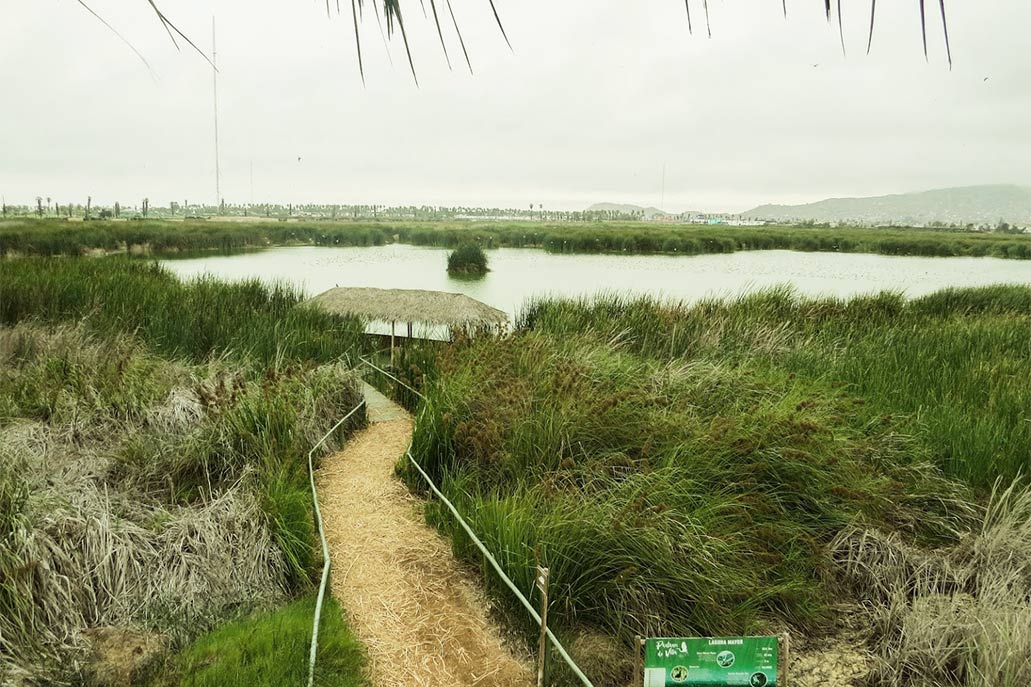
The Pantanos de Villa are a refuge for wildlife in the heart of the city of Lima. It is located in the district of Chorrillos, south of the city. These are marshes where migratory birds and abundant flora can be seen. It covers an area of 263.27 hectares. The landscapes there, especially at sunset, are one of the most beautiful in the city.
More than 210 species of birds have been registered in the Pantanos de Villa, including: seagulls, herons, parihuanas, diving ducks, pelicans, eagles and more. The place has an ecological importance for the conservation of the ecosystem. It also helps to improve the clean air in the city. It is very visited by schoolchildren and university students. Don’t forget to bring your camera!
- How to get there? From any part of the city of Lima, take the ‘Panamericana Sur’ highway until you enter the district of Chorrillos.
- How much does it cost? Foreign adults 30 soles, Peruvian adults 20 soles, children 10 soles and university students 13 soles.
The Lomas de Lucumo
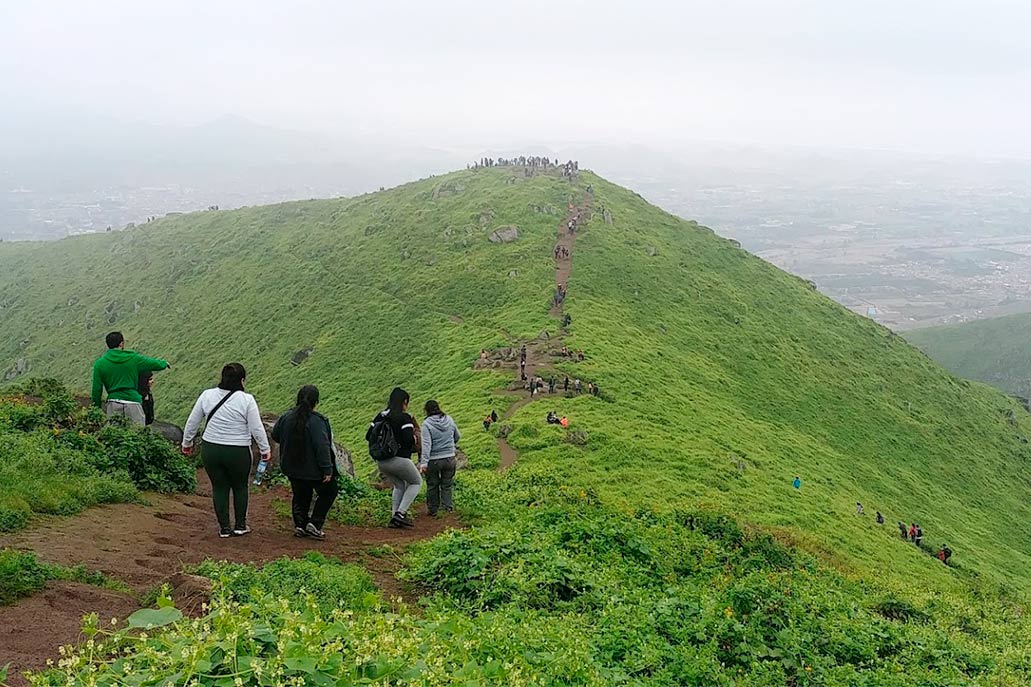
The south of Lima is not only famous for the important Pachacamac Sanctuary. There you can also visit natural areas of great scenic beauty such as the Lomas de Lúcumo. The humidity of the sea creates a unique ecosystem full of vegetation and wildlife. It is only 34 kilometers from Lima. Visitors who arrive like to camp.
In these hills, in addition to the beautiful landscapes and pure air, visitors like to do adventure sports. The geography is ideal for cycling, climbing, trekking and even rappelling. Most of the visitors are the same people from Lima. In 2009, 7,400 visitors were registered. Expect even more to arrive each year!
- How to get there? From any part of the city of Lima, take the Panamericana Sur to the district of Lurín. At the ‘entrance to Pachacamac’ you must take a taxi or collective taxi to this town. Finally by mototaxi to the ‘Poblado verde’. The trip takes 1 hour 20 minutes in total.
- How much does it cost? Adults 8 soles, adults over 60 years old and children 4 soles 50 cents. The right to camp costs 8 soles.
By Machupicchu Terra – Last updated, August 28, 2023